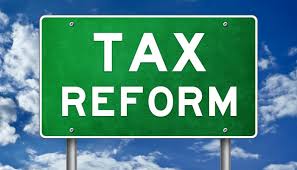 Oritsegbubemi Omatseyin
Oritsegbubemi Omatseyin
Lagos — The Petroleum and Natural Gas Senior Staff Association of Nigeria, PENGASSAN, has expressed concern over some aspects of the Tax Reform Bills during its National Executive Council, NEC, meeting in Abuja.
According to PENGASSAN, some provisions in the bill have the likelihood of negatively impacting the Nigeria Upstream Regulatory Commission, NUPRC, and the Nigeria Mid and Downstream Petroleum Regulatory Authority, NMDPRA.
Speaking at the NEC meeting, Comrade Festus Osifo reaffirmed that the Port Harcourt refinery is working.
He said: “The Association noted the ongoing tax reforms and wishes to demand that the tax relief exemptions given to those earning minimum wage and business should be expanded to accommodate more people and companies in that category.
“With the minimum wage going up to N70,000 minimum, many low earners will see their pay increase to about N120,000 and N150,000; therefore, these workers need tax rebates. The N800,000 threshold is too small. The tax committee needs to re-examine this again.”
He added: “We shall participate actively in the public hearing where our position will be well articulated. We hereby call on the National Assembly to conduct a proper public hearing session where different views will be collated to amend the provisions in the bill and not just to tick the box.”
The Association advised the Federal Government to expand the scope of tax relief exemptions, especially for workers in the oil and gas sector.
While the bill has been debated several times in the National Assembly, the Association has cautioned the legislature against hurriedly passing the tax bill without recourse to proper public hearing or effecting amendments where necessary.
In addition, Comrade Festus Osifo called on the Federal Government to protect Nigerian workers from the influx of foreigners who have taken the jobs meant for Nigerian citizens.
He also emphasised on pressing concern of the high number of expatriates in Nigeria’s Oil and Gas industry, mainly from India. While skilled foreign workers contribute to economic development, the current situation demands attention.
“Many expatriates and alleged quota abuses raise concerns about long-term national development impact. Expatriate employment also strains the economy due to salaries, remittances, and other expenses. Socially, it can fuel unrest and resentment among Nigerians who feel excluded from opportunities in their industry. We demand strengthening our regulatory mechanisms and enforcing the regulations to promote local content and ensure transparency and accountability. We must work towards ensuring fair sharing of our natural resources to the benefit of all Nigerians,” he stated.
He also declared his support for strike actions in states that have not implemented the N70,000 national minimum wage, saying: “We are members of the Trade Union Congress, therefore we are a part of every decision TUC takes. Most of our members are not minimum wage earners, we are part of the struggle. We have gone on strike for issues that did not affect us directly. This will not be an exemption. Our appeal is to all state governments to implement the new wage so as not to attract the wrath of the organised labour movement.”
Osifo concluded by reaffirming PENGASSAN’s commitment to transparency, urging Nigerians to remain vigilant and continue holding the government accountable for the effective management of national resources.
This article was originally posted at sweetcrudereports.com
Be the first to comment